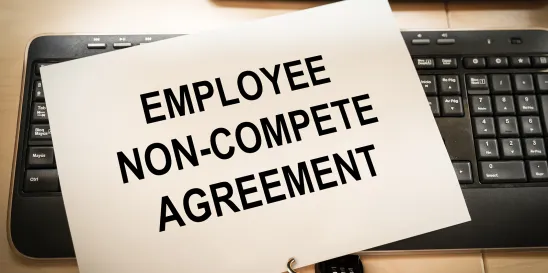While many state legislatures have jumped on the Federal Trade Commission’s (FTC) bandwagon by enacting prohibitions on restrictive covenants (which includes both non-competition and non-solicitation provisions), Washington, D.C.’s Office of the Attorney General (OAG) has gone one step further, imposing a range of fines and penalties for violations of Washington, D.C.’s non-compete ban.
As an overview, the non-compete ban, effective as of October 1, 2022, imposes the following limitations on employers: (1) non-competes can only be implemented with highly compensated employees (generally those earning $150,000 or more; (2) the non-compete provision must be no longer than one year following separation from employment; and (3) employers are also prohibited from seeking to enforce any form of restrictive covenant (including non-solicitation provisions relating to employees, clients, and vendors) with any worker other than highly compensated employees.
While the plain language of Washington, D.C.’s non-compete ban is clear and straightforward, that has not stopped employers from trying to disregard or circumvent the law. Although this strategy may have worked for a short time, in recent weeks the OAG has publicly announced several settlement agreements with a handful of employers who admitted to violating said non-compete ban.
Setting aside fines and penalties, employers who are found in violation of the non-compete ban will likely face a public relations disaster. In one case, the OAG required an employer – a Florida healthcare staffing firm that did business in Washington, D.C. — to pay a former employee over $100,000 after refusing to release the employee from a non-compete agreement. Even though the former employee had alerted the company that its non-compete contract was illegal, the employer remained steadfast, causing the former employee to remain unemployed for ninety (90) days. In a different matter, the OAG required a franchisor to stop enforcing a “no poach” clause with its franchisees where the provision prevented workers from going to different franchises within the same fast food chain. The public settlement agreement also required the franchisor to refrain from including “no poach” provisions in its franchisee contracts on a going-forward basis.
Based on current trends, it is very likely that other state enforcement agencies will take a page out of the OAG’s playbook. Because the landscape of restrictive covenants has been ever-changing in the last few years, it is important for employers to remain vigilant in their constant review of state employment laws where they conduct business within the United States. The “seek forgiveness, not permission” approach is not a winning strategy.




 />i
/>i
